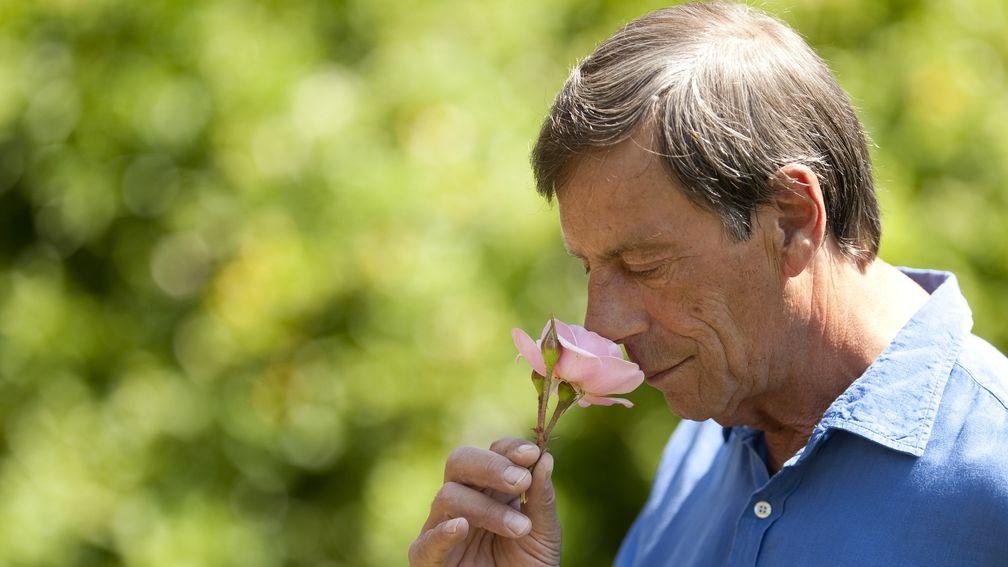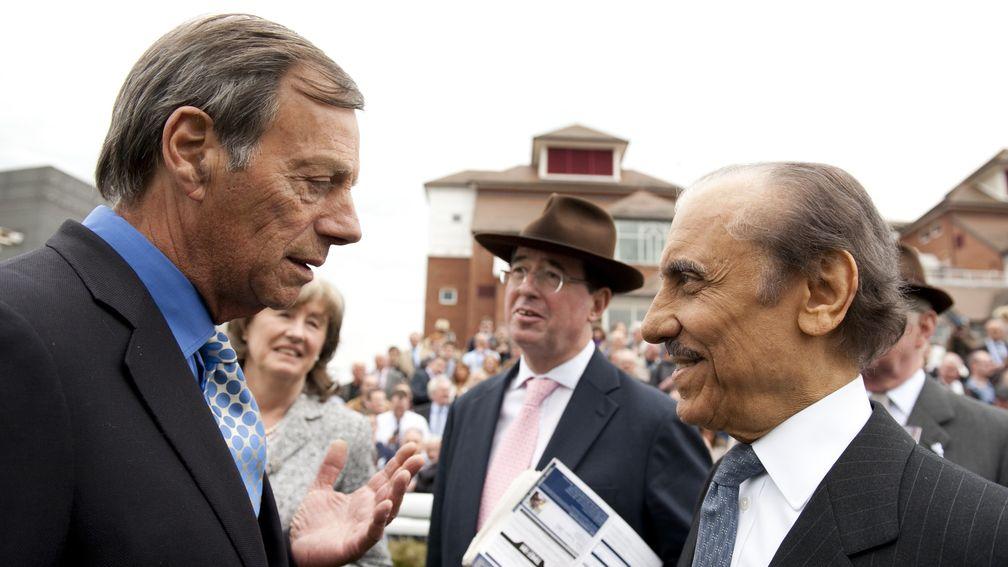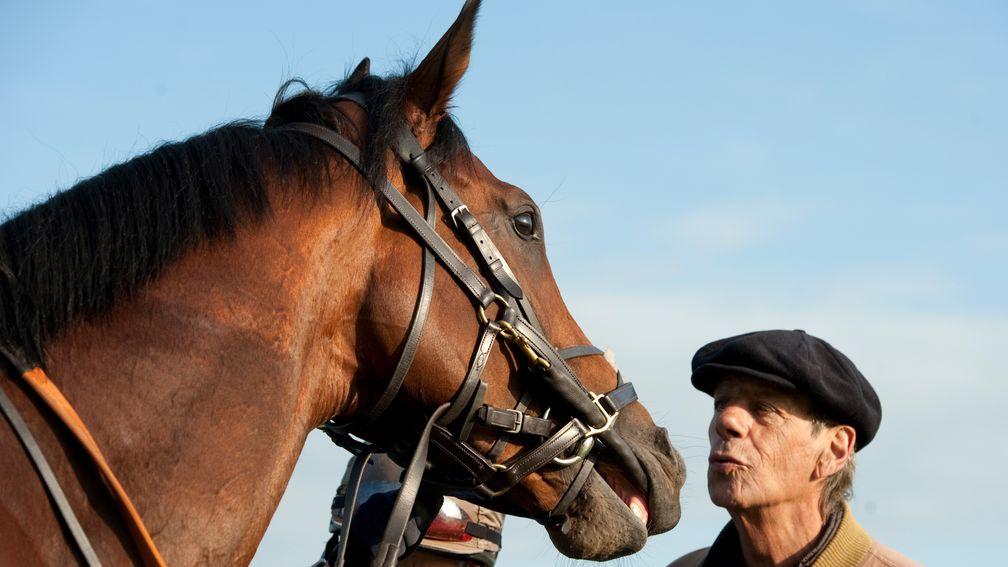Alastair Down remembers racing's best-loved trainer Sir Henry Cecil

Sir Henry Cecil died on June 11, 2013, and this piece was published the following day
Born to the castle but beloved of the country cottage and council house, Sir Henry Cecil was the most cherished and totemic figure of his era, and beyond any doubt among the two or three finest and most instinctively gifted racehorse trainers of all time.
And there was an aura about Henry that made you feel that while the knight of Warren Place was still around then the age of chivalry was not yet dead. There was always the whiff of glamour about Henry, but it was no superficial thing as his style was always backed by substance.
While his achievements were remarkable and almost without precedent, what made Cecil unique was the unshakeable bond he forged with the racing public. Nobody else in racing over the last 40 years has been held in such respect and affection. The public loved the man and it is devoutly to be hoped he fully understood what he meant to people and, in recent times, drew some spiritual sustenance from it.
Cecil started training in 1969 and won the Eclipse in his first season. Up to then all the years were BC – Before Cecil. But from that point in time until yesterday everybody who follows the sport will have their own particular memories of the defining trainer of their age.
Successive generations have grown up and grown old with him, which is why the sadness in many a racing household is not at the death of some remote grandee but the loss of someone regarded almost as a friend who had stitched many a moment of magic into the weave of our sporting lives.
In a way Henry died once before – professionally. Having ruled the heights, suddenly everything went adrift and between July 2000 and October 2006 he did not saddle a single Group 1 winner and many a mutter was that he had gone at the game. In 2005 there were just a dozen winners, Warren Place was haemorrhaging money as the stable strength dwindled from 200 horses to 50. The decline looked irreversible.

Most admirably, he bought his ferocious competitiveness to bear on the battle with cancer, which was first revealed in 2006. He refused to bow to it and the courage with which he “fought the long defeat” made him the lion in summer. He never once burdened us with details of treatment, complaints about pain or the sheer medical drudgery of trying to stay alive – he just got on with it, doing his job in public, fighting his battle in private.
Of course we could all see the toll gradually increasing, the almost ludicrous good looks of his undoubtedly wild youth being overhauled by something more gaunt. You couldn’t stop your heart going out to the man. When Frankel won last year’s Juddmonte International at York, Henry, black-hatted, husky of voice and plenty frail, stood next to his equine masterpiece and you could all but feel the goodwill emanating from the crowd.
Many there that August afternoon knew full well that it was unlikely they would see him on his beloved Knavesmire again, but it was important for them to stand and applaud and be witness to a famous day made unforgettable by two indelible greats. The respect there as usual, the affection as always.
To go and visit him in Newmarket was to enter something of an enchanted world, the heart of the wise wizard’s kingdom. When last there the roses were not yet in full bloom but the famous mummy’s peas were shooting and the recently discovered prehistoric tree growing steadily away.
The garden at Warren Place was where Henry took his mind when it needed rest and respite. Training a couple of hundred bluebloods was always pressure enough and one can only muse at what thoughts flickered across that brain during the barren years.

For all the Classic winners and the myriad Group 1s, it will be Frankel with whom he will forever be linked, the unbeatable trained by the inimitable.
Nobody who was on the Rowley Mile that afternoon when Frankel barnstormed the 2,000 Guineas will ever forget the palpable shock of his brilliance. Nobody had ever seen anything like it for the very simple reason nothing like it had ever happened before.
As Frankel’s tale grew in the telling there was something spectacularly gratifying that he was in Henry’s hands. The great man might indeed be suffering, but if Frankel was going to be his swansong then it was a glorious one that would echo down the centuries by way of a monument.
If Henry was increasingly frail, the sage in his loafers still had plenty of his old spark. He was, as ever, the very prince of politeness who could have written a textbook on manners. As the hacks gathered round after yet another spectacular Frankel triumph the customary happy pantomime would begin as Henry tilted that great head to one side and inquired of the assembled scribes: “What do you think?”
It was all you could do not to blurt out: “I think you are a bloody genius mate, and I wish you weren’t ill.”
Though he was by no means a saint, I can recall no whiff of scandal or suggestion of chicanery ever attaching itself to his horses or the way in which they ran. If he had occasional ups and downs in his personal life, the public saw his shortcomings as being like their own and thought none the worse of him.
For the next few days and weeks racing will be awash with tributes. But those closest to him and who loved him most dearly will simply be awash.
What is for certain is that racing’s landscape will look very different no longer illuminated by the beacon of brilliance that was Cecil. Royal Ascot was for many years his stamping ground and where he ruled supreme, season in, season out.
Next week’s meeting will be the first of my working lifetime without that lofty presence immaculately attired. I can see him now at the Ascot of old, silk-toppered, often blue of shirt and yellow of tie, with a saddle under his arm and striding from the weighing room towards the saddling boxes at the top of that beautiful paddock guarded by its phalanx of mighty trees, centuries in the making.
If Hollywood had tried to create the dashing, patrician English racehorse trainer they would never have dared come up with anything as splendid as Cecil.
So perhaps this year, among all the frippery, room could me made for a minute’s silence in grateful memory of a man born for the Ascot stage who combined a love and understanding of the high-class thoroughbred with a lifelong flair for fashion.
When great men die they inevitably pass into the hands of obituary and historians and Henry will be no exception. Facts and figures will be piled high and his praises rightly sung.
But for those of us whose racing life coincided with his, there is a genuine pang at his passing because with him goes the strongest connection with so much of our own racing histories. Henry composed and orchestrated the sporting back catalogue of countless hundreds of thousands of us for more than four decades. No surprise then that it hurts a bit because part of our own past dies with him.
There is a sense of relief that his suffering has come to an end and, although he must have been bowstring-weary with the fight, nobody could have been more valiant.
He will be mourned in every corner of the racing village because his appeal was universal and enduring. But above all he should be celebrated because he had more life, vigour, courage, individuality and sheer, natural, rampant talent than can usually be found in a legion of folk.
Our bright spark of genius has been extinguished. Well may the trumpets sound for him on the other side.
Members can read the latest exclusive interviews, news analysis and comment available from 6pm daily on racingpost.com